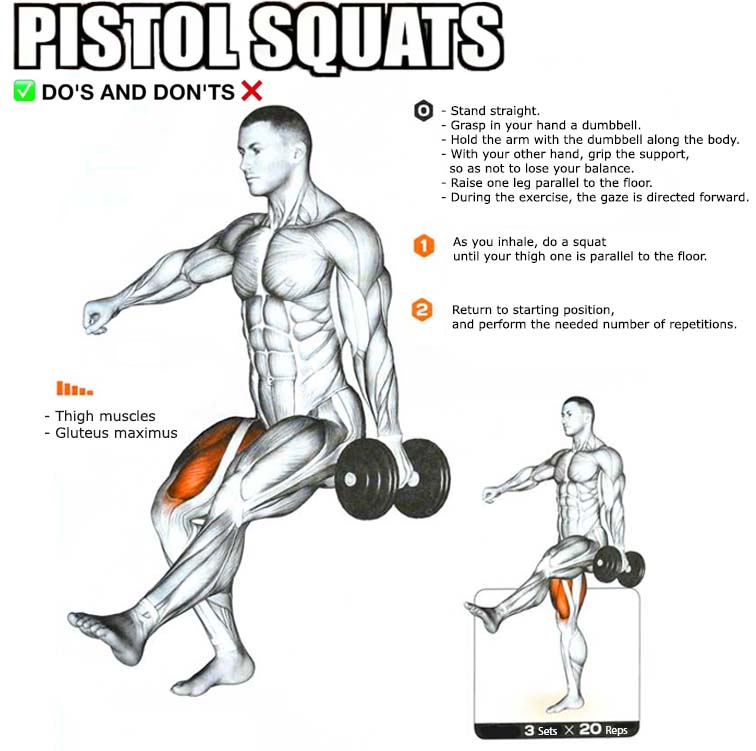
Single leg squats are a great exercise for building strength, balance, and stability. They target a variety of muscles in the lower body, including the quadriceps, hamstrings, glutes, and calves. In this article, we'll take a closer look at the specific muscles worked during a single leg squat and how to perform the exercise properly.
The Quadriceps

The quadriceps are a group of four muscles located on the front of the thigh. They are responsible for extending the knee and are heavily involved in the single leg squat. During the exercise, the quadriceps work to straighten the knee and lift the body back up to a standing position.
The Hamstrings

The hamstrings are a group of three muscles located on the back of the thigh. They are responsible for flexing the knee and extending the hip. During the single leg squat, the hamstrings work to control the descent of the body and assist with pushing back up to a standing position.
The Glutes

The glutes, or buttocks muscles, are heavily involved in the single leg squat. They work to extend the hip and push the body back up to a standing position. The glutes also help to stabilize the pelvis and maintain balance during the exercise.
The Calves

The calves are located on the back of the lower leg and are responsible for plantar flexion, or pointing the toes downward. During the single leg squat, the calves work to maintain balance and control the descent of the body.
The Core

The core muscles, including the abdominals and lower back, play a crucial role in maintaining proper form during the single leg squat. They help to stabilize the torso and prevent excessive movement or rotation.
Proper Form for Single Leg Squats

To perform a single leg squat, stand with your feet hip-width apart and shift your weight onto one leg. Raise the other leg off the ground and extend it in front of you. Keeping your chest lifted and your core engaged, slowly lower your body down as far as you can go while maintaining proper form. Push back up to a standing position and repeat on the other leg.
It's important to keep your knee in line with your toes and avoid letting it collapse inward. You should also keep your hips level and avoid leaning too far forward or backward. Start with a few repetitions on each leg and gradually increase the number as you become more comfortable with the exercise.
Benefits of Single Leg Squats

Single leg squats offer a variety of benefits, including improved balance, stability, and coordination. They also help to strengthen the muscles of the lower body, including the quads, hamstrings, glutes, and calves.
In addition, single leg squats can help to improve athletic performance by increasing power and explosiveness in the legs. They can also be a great exercise for those with knee or hip pain, as they can help to strengthen the muscles around the joint and improve overall mobility.
Conclusion
Single leg squats are a challenging but effective exercise for building strength, balance, and stability in the lower body. They target a variety of muscles, including the quadriceps, hamstrings, glutes, and calves, as well as the core. By incorporating single leg squats into your workout routine, you can improve your athletic performance and reduce your risk of injury.